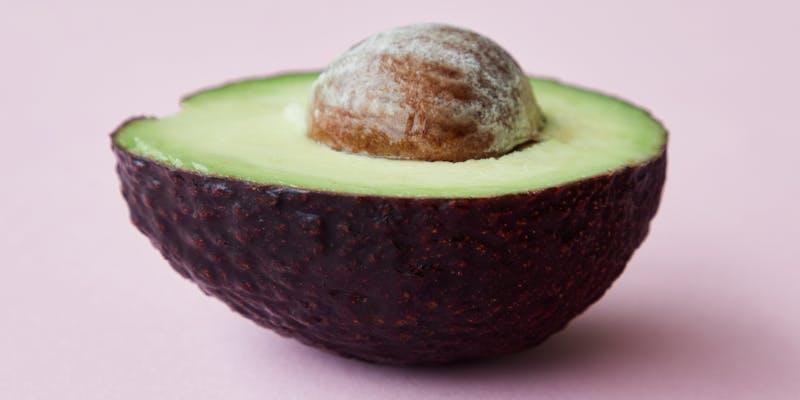Vitamin E inhibits free radical damage to cells and is among the most essential fat-soluble antioxidants in vitamin E creams and other products. Its very existence is vital for ensuring health. In the form of tocopherols and tocotrienols, vitamin E refers to a class of eight chemically related compounds. In contrast to the remaining seven tocopherols, alpha-tocopherols are utilized and absorbed by the body with greater efficiency and accessibility. Rat experiments led to the initial identification of tocopherol in 1922. Natural or synthetic forms of the substance may be present in dietary supplements. Simply fifty percent of the activity of the natural form is exhibited by the synthetic form.
Foods With Vitamin E

There is an abundance of remarkable foods rich in vitamin E used in vitamin E cream that can be utilized to prevent the development of numerous conditions. These consist of the following:
- Sunflower seeds
- Olive oil
- Sweet potato
- Avocado
- Hazelnuts
- Trout
- Palm oil
- Wheat germ oil
- Kiwi
- Almonds
- Spinach
- Meat
- Eggs
- Tomato
Vitamin E Dosing
The quantity of vitamin E that we take is also important. Wheat germ oil, meat, eggs, fruits, and grains are excellent sources of vitamin E. In medical practice, the fixed RDA prefix represents daily dietary guidelines. In contrast to adults and other lactating mothers are encouraged to rejoice in a little bit of tocopherol from 22 and 19 RDAs, respectively.
Vitamin E, made synthetically from all-rac-alpha-tocopherol, is quantified differently from RRR-alpha-tocopherol, which is un-refined. It's difficult to find the right dosage for supplements. Harm to health can also stem from such nutrition additives. American Heart Association advises taking vitamin E from a balanced diet until more exact data becomes available.
Lowers Oxidative Stress And Boost Antioxidant Defenses
If your body's antioxidant defenses do not match or outbalance the reactive oxygen species buildup (ROS), a state known as oxidative stress occurs. Furthermore, such effects can cause cell damage and increase susceptibility to various diseases. From examined research, supplementing vitamin E in large amounts can sometimes reduce the symptoms of oxidative stress and improve antioxidative defense in some populations. This phenomenon is attributed to vitamin E being a strong antioxidant in the human body.
An example of this is a 2018 research done on 54 individuals who had diabetes that caused the kidney disease known as diabetic nephropathy, which resulted in the taking of 800 international units of vitamin E with vitamin E cream per day for twelve weeks. The study found a substantial increase in glutathione peroxidase (GPx) levels compared to a placebo.
The GPx set of antioxidant enzymes represents an important physical barrier for your cells, protecting them from the stress caused by free radicals. In the setting of women with endometriosis, the study done in 2021 has shown that consuming a vitamin E supplement with vitamin C daily for eight weeks can decrease the markers of oxidative stress, including malondialdehyde and reactive oxygen species.
Other Benefits Of Vitamin E
Helps With Eye Health
Consistent use of vitamin E tablets or vitamin E cream can delay age-related macular degeneration. NIH studies revealed that vitamin E, zinc, copper, and major antioxidants may have delayed the disease process in high-risk groups at the last stage. They may admit that just a piece of minimal evidence suggests the possible benefits of vitamin E in treating eye problems.
Manages Cholesterol
Damage to coronary arteries raises myocardial infarction risk. "Bad cholesterol," or LDL cholesterol, causes arterial constriction via oxidative stress. National Institutes of Health research shows that vitamin E's antioxidant properties inhibit LDL cholesterol oxidation. Thus, cardiovascular disease risk decreases.
Prevents Coronary Heart Disease
Many studies show vitamin E serum may prevent or delay coronary heart disease. In vitro studies suggest vitamin E may lower blood-clotting LDL cholesterol. Vitamin E reduces cardiovascular disease risk, according to an observational study.
Vitamin E supplementation or pure vitamin E oil may lower coronary heart disease risk. However, a limited sample size has not addressed the argument. According to the National Institutes of Health, vitamin E's effects on coronary heart disease patients should be researched in younger participants over time.
Risks Associated With Vitamin E Consumption

It remains unclear what the pros and cons of vitamin E intake are. It has also been associated with an increased risk of hemorrhagic stroke by studies. Patients who got 400 IU or more daily died due to any cause, based on a survey of clinical trials. The risk increases even more with increasing levels of concentration. People with cardiovascular disease or diabetes drinking 400 IU daily of natural vitamin E have twice the chance of getting heart failure or being hospitalized because of heart failure, according to cardiovascular studies.
Eating plenty of fruits, vegetables, and whole grains provides various antioxidants, including vitamin E, which the American Heart Association recommends. Supplements are not recommended. Before supplementing, ask your doctor whether pure vitamin E oil is needed. Vitamin E acetate in e-cigarettes and other vaping products can induce EVALI.




